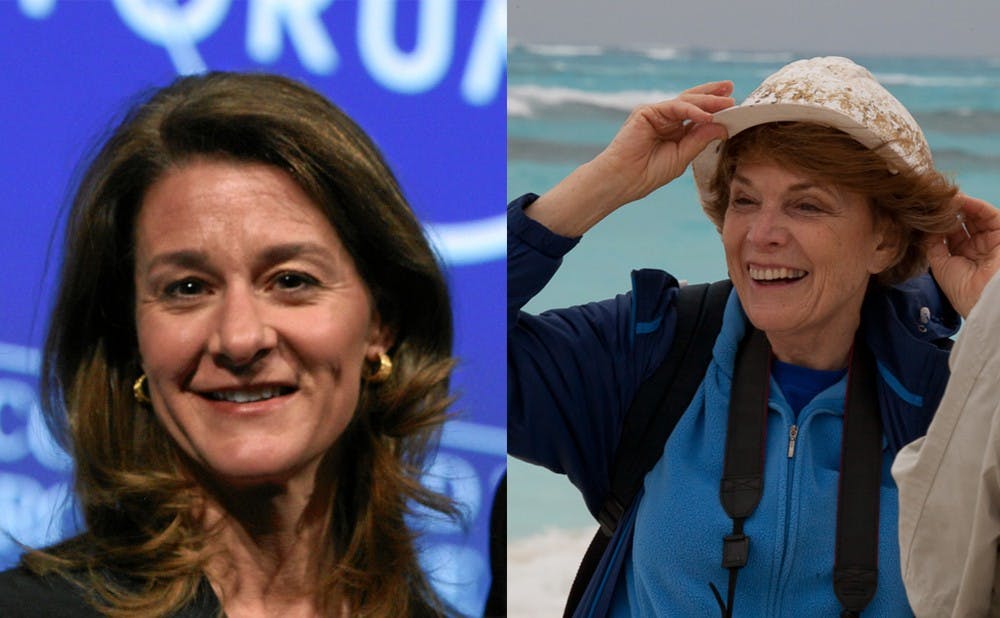Time Magazine recently featured two Duke alumnae in its Time Firsts project for pioneering achievements and glass-ceiling-breaking work.
The project, which rolled out Sept. 7, features 46 women "who are changing the world." Among those featured are Duke alumna Melinda Gates—who became the first woman to give away more than $40 billion to charity—and Sylvia Earle, who was the first woman to become chief scientist of the U.S. National Oceanic and Atmospheric Administration.
Gates and Earle’s Duke stories, though beginning years apart, both reflect a commitment to the betterment of Duke, members of the Duke community noted.
After graduating from Trinity College with a Bachelor of Science degree in 1986 and from the Fuqua School of Business with a master's degree in business administration in 1987, Gates returned to Duke to deliver the 2013 commencement address. Gates has also contributed to Duke through sizable donations.
Eric Mlyn, Peter Lange executive director of DukeEngage, explained that the Gates Foundation's $15 million gift that established the program was “truly transformational philanthropy." He emphasized the vital role Gates played in the program’s creation.
“Because Melinda Gates understood our vision for what DukeEngage could become, the Gates Foundation gave Duke the resources we needed to launch an ambitious program to connect students with communities around the world—to educate students outside the 'Duke bubble," he said. "Those real-world connections have been changing the way Duke students think about themselves and others for 10 years now, helping to create a student body that is more aware, more knowledgeable and more thoughtful about their place in our global society.”
The Duke Global Health Institute was another recipient of Gates' philanthropy. Gates donated $20 million to the Institute, which works to “reduce health disparities in our local community and worldwide.”
“[Gates] was an early and enthusiastic supporter of the Duke Global Health Institute," said Randall Kramer, interim director of DGHI. "Her contributions have made it possible for DGHI to enhance its education programs, offer graduate fellowships and increase faculty support.”
Like Gates, Earle stayed involved with Duke after graduation. Since receiving her Ph.D. in botany from Duke in 1966, Earle has maintained a steady connection with the University and its Marine Lab. Andrew Read, Stephen A. Toth Professor of Marine Biology and the Lab's director, wrote in an email that Earle was known fondly as "Her Deepness."
"She is still a role model for many current students and is one of the most articulate and compelling voices for conservation of marine ecosystems," Read wrote.
Read is not alone in his respect for Earle. Cindy Van Dover, Harvey W. Smith professor of biological oceanography, has expressed similar sentiments.
“She is a compelling speaker, a gentle woman who is incredibly tough, strong and capable," she said. "I love her dearly for who she is, what she has accomplished, for the example she sets for how to care for the sea. She is our Rachel Carson.”
Get The Chronicle straight to your inbox
Signup for our weekly newsletter. Cancel at any time.

